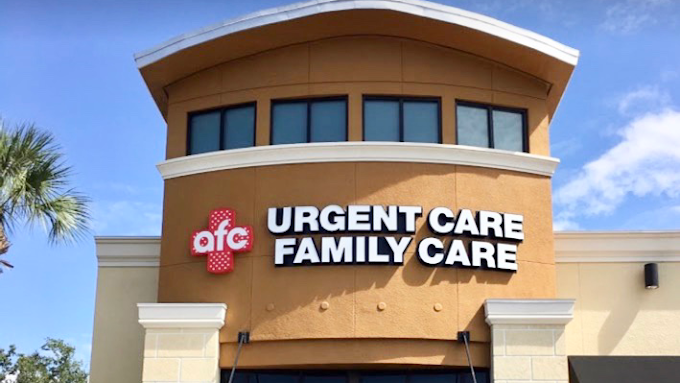With the impact of the current pandemic affecting virtually all businesses around the world, you might question why it’s necessary to perform SEO and marketing activities at all.
In a way, it makes sense to cut costs on advertising, search engine optimization and other activities that don’t bring immediate relief. But if we can look at other historical crises, we can get a better idea of the best steps we can take to not just survive a major crisis but also grow in the aftermath.
From the recessions of 2009 and 1990, we have examples of how businesses have fared today thanks to the actions they took then. During the 2009 recession, Amazon did not stop its marketing activities and even introduced the Kindle. It saw its sales grow by 28%. When McDonald’s stopped its advertising efforts in 1990-91, Taco Bell and Pizza Hut increased their own marketing and took a huge slice of the food market.
While these crises were different from the current one, we can still take helpful information from them. You may find it difficult to be heard again in the future if you adopt silence today. This is why it’s important to focus on being visible with the help of SEO strategies. Done correctly, SEO can mitigate the impact of the current pandemic on your business by helping you reach more customers online.
Let’s dive in and explore some powerful SEO strategies you can apply to your own business.
1. Do local SEO.
Today, people are looking for local products and services more than ever. Developing your online presence for a specific physical location through local SEO will help you reach out to your community. Here’s a quick breakdown of ways you can help people find you for local results:
- List your business’s contact details on your website. Make sure that these details are consistent across all platforms.
- Add details such as your company’s address, contact information, products and services on business directories like Yelp.
- Create your Google My Business profile for your brand and keep it updated, such as by adding new posts.
- Create a company profile on Facebook, and include your address and other company details there.
- Encourage your customers to post reviews to boost your brand image.
These are ways to ensure that search engines can find your business and verify that it’s real. You also need to post content such as images and relevant information in these places. Your business hours, support availability and contact information are all details that will help your audience, which in turn improves your SEO.
2. Get writing.
One of the keys to SEO is the content you create. Businesses that publish more than 16 blog posts per month get nearly 3.5 times more traffic than businesses that publish fewer than four posts a month.
Writing blog content regularly and updating your older posts signals to search engines that your content is fresh, up to date, and relevant.
However, making content is time-consuming and can’t be easily scaled. If you’re managing several tasks at once, the answer lies in evergreen material. This type of content contains information that users can refer to time and again. Such topics or content will be relevant year after year. According to Ahrefs, they will bring you traffic that increases steadily over time.
In addition to evergreen content, create resources, FAQs, and posts that answer COVID-19 questions in relation to your business and industry. The pandemic is a top trending topic at the moment, and you’ll help your audience by telling them what to expect and how things stand.
To streamline the task of sharing your posts to social media, use a social media management tool like Hootsuite or Buffer. You’ll be able to post to multiple platforms at once and schedule content for the future.
3. Video content is your friend.
Adding video content to your toolkit can be a game-changer for your business. It needs to be a major part of your content and SEO strategies for the following reasons:
- Mobile phones and the internet are widely available and affordable, meaning that your audience is larger than ever before.
- Video is the most effective way to consume content on small mobile screens.
- Search engines prefer to give a variety of search result types for broad keywords. You stand to rank well simply by offering a different content format for the right terms.
It’s an established fact that videos have the greatest engagement online and can be a powerful way to boost your online brand.
It isn’t necessary to create elaborate and expensive videos using professional equipment if that’s not feasible for you. Today, authenticity and showcasing a real face to represent your brand goes a lot further with your audience than manufactured content. Don’t hesitate to use your mobile phone and work with the tools you do have to make videos to communicate with people.
Having said that, it’s important to familiarize yourself with platforms like TikTok and features like Stories on social media. Short, often humorous, engaging videos appeal the most to viewers. Use these new and popular formats for inspiration to create your own video content. Alternatively, you can work with platforms like Fiverr and hire a video creator, or use free video content creation tools to create more serious visual content.
4. Encourage positive reviews.
Along with all the other steps given here, one powerful step that will support all your online activities is to encourage more reviews. In times of uncertainty, social proof matters more than ever.
Reviews of your brand or products on directories, Google My Business, and Facebook will help build your authority. Your brand’s authority on a subject forms part of the E-A-T trifecta. E-A-T stands for “expertise, authority and trust” and is a core guideline that Google uses to rank a website for certain terms.
An easy example can be found in the medical field. When people look for information about a specific health concern, the best and only acceptable source is from a reputed medical organization. A medical association has high expertise, authority and trust, so content from such places will rank well.
So, build your authority and showcase social proof by asking your users to review their experience with you. Send an automatic email after your customer makes a purchase, or add an NPS survey on your website. Also, use case studies, testimonials and social media content from your customers to help build your brand image.
5. Focus on link building.
A necessary but equally challenging task for SEO is to build backlinks to your website. When people find your content useful, they refer to it and link to it in their own blog posts. For search engines, this is a powerful indicator that your content is valuable and relevant for certain keywords.
How can you build links?
- Do outreach and ask relevant influencers and thought leaders to check out your content and to share it with their own audience if they find it interesting.
- Create content as a guest blogger on other websites to reach other audiences and help people with valuable information.
However you choose to build links, you’re looking at a steady and consistent effort over time to see results. Ultimately, your focus needs to be on building content that gets shared. In these critical times, making resources that help people learn how to navigate a new way of living is an effective way to get more readership.
During this crisis, many businesses are struggling to keep their heads above water. It may seem like the right step is to disinvest from marketing activities. But if history is any indication, reducing your marketing and SEO efforts may hurt you later. We’ve looked at SEO tips that can help your business meet the current challenges proactively. Not every business may be able to create an online presence, but if you can pivot to reach out to your customers online, then you have a helpful draft here to assist you. Now, over to you.







